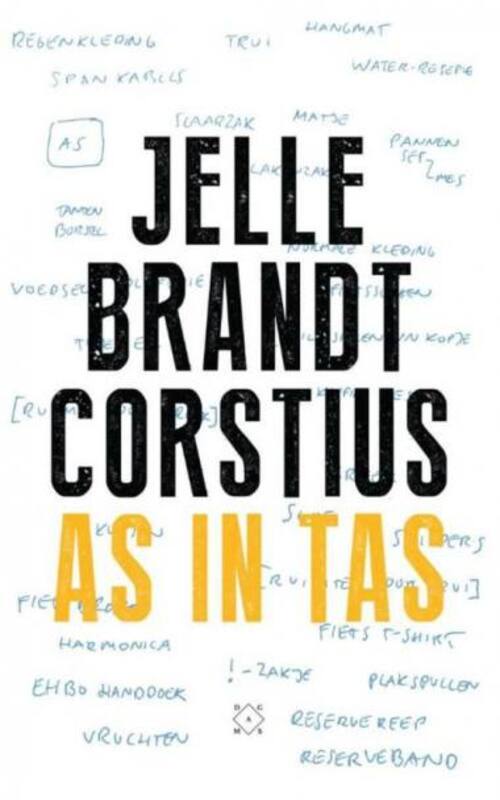
Every spring, Jelle made a bicycle trip with his father, the renowned essayist and language virtuoso Hugo Brandt Corstius – always without a destination but with the certainty that they would return within two days. They couldn’t bear each other longer than that. Hugo Brandt Corstius was a remarkable man who understood a lot about things most people understand little of, such as palindromes. But he understood little about the things most people know a lot about, such as raising children.
In 2014, Jelle began another journey - but this time without his father, who had passed away two months earlier. With his father’s ashes in his bag and hardly any training or preparation, Jelle travels the 1,620 kilometres from Amsterdam to the south of France in sixteen days. He evades being robbed by gipsies, meets interesting (and uninteresting) people, and drags fifty kilos of luggage across the Ardennes to the Mediterranean, where he finally scatters the ashes. Hugo’s Ashes is Jelle’s most personal story, written at a time when he just had become a father himself.
‘The love of a son is heartrendering. As in tas is written in such a lighthearted style that one can hardly tell how essential the scenes are that are being described, and there there isn’t one bad or unneccessary sentence in that book. A disarmingly good novel.’ – de Volkskrant****
‘As in tas is full of imagery that with a lesser writer would run the risk of sprawling out over pages, but Jelle Brandt Corstius keeps it compact, suggestive and light. (…) He supplies the reader with very amusing, haertwarming fiction, with all respect for the surely traumatic experiences he had to face for it in his youth. – Vrij Nederland (Boek van de Week)****
‘What a fantastic book. Amongst the often hilarious descriptions of the bike routes, Jelle shares his memories of his father with the reader. (…) The book is an openhearted, simple and at the same time touching portrait of a father that had many talents, but the one for fatherhood.’ – Trouw